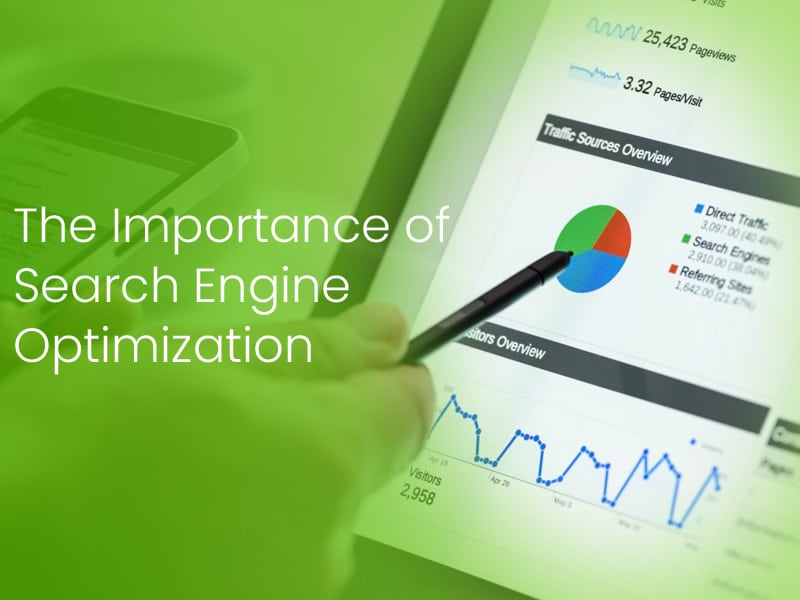Search Engine Optimization (SEO) is an ever-evolving digital marketing strategy that has become indispensable for businesses and website owners alike. Its primary purpose is to enhance the visibility and ranking of your website and its content on search engine results pages (SERPs). SEO is not just a buzzword; it is the driving force behind online success in today’s digital landscape. In this comprehensive article, we will delve deep into the importance of SEO and provide you with an extensive set of tips to optimize your website effectively. By the time you finish reading, you will have a thorough understanding of SEO and the tools necessary to implement it successfully.
Why is SEO Important?
- Increased Website Traffic: It all starts with visibility. The higher your website ranks in SERPs, the more likely it is to receive organic traffic. By optimizing your website for SEO, you significantly enhance the chances of potential customers discovering your site when searching for relevant keywords. This boost in visibility can result in a substantial increase in website traffic, which, in turn, can lead to more leads, conversions, and revenue.
- Better User Experience: Search engines are committed to providing users with the best possible results. Websites that are optimized for SEO tend to offer better user experiences. These sites are easier to navigate, load faster, and provide valuable content. This translates into longer time spent on your website, lower bounce rates, and increased user engagement – all of which are crucial for SEO success.
- Increased Credibility and Authority: High-ranking websites in SERPs are often perceived as more credible and authoritative by users. Search engines use various criteria to rank websites, including content quality, user experience, and backlinks. By optimizing your website for SEO, you can build your credibility and authority within your industry, ultimately fostering trust with potential customers.
- Cost-Effective Marketing: SEO is a cost-effective marketing strategy because it targets users who are actively searching for keywords related to your business. You are essentially reaching out to individuals who already have an interest in your products or services, increasing the likelihood of them converting into customers. Additionally, SEO yields long-term results, as your website continues to rank in SERPs even after the initial optimization efforts.
Tips for Optimizing Your Website for SEO
- Conduct Comprehensive Keyword Research: Keyword research is the foundation of any successful SEO campaign. It involves identifying the keywords and phrases that users use to search for businesses like yours. Utilize tools such as Google Keyword Planner, SEMrush, and Ahrefs to conduct in-depth keyword research. Look for high-volume, low-competition keywords that align with your business goals.
- Optimize Your Website Structure: Your website’s structure plays a pivotal role in SEO. Ensure that your website is easy to navigate with a clear page hierarchy. Use descriptive page titles and meta descriptions and incorporate relevant keywords within your content. Moreover, it is imperative that your website is mobile-friendly and boasts a fast loading time, as these factors significantly influence search engine rankings.
- Create High-Quality Content: Content is the heart and soul of SEO. It is crucial to produce content that not only caters to your target audience but also resonates with search engines. Prioritize creating high-quality content that is valuable, informative, and engaging. While using relevant keywords is important, avoid keyword stuffing, as it can have adverse effects on your SEO. Structure your content with headings, subheadings, and bullet points to enhance readability.
- Build Quality Backlinks: Backlinks are the bridges that connect your website to the broader online ecosystem. They are vital for SEO because they serve as signals to search engines, indicating that other websites find your content valuable and relevant. To build quality backlinks, create content that other websites in your niche would naturally want to link to. Additionally, engage in outreach efforts to establish relationships with other websites in your industry and request backlinks.
In today’s digital age, SEO is not merely a supplementary aspect of digital marketing; it is the foundation upon which online success is built. By optimizing your website and content for SEO, you can significantly increase your visibility in SERPs, improve the user experience, and establish credibility and authority within your industry. Embrace SEO as an integral part of your digital marketing strategy, and you will undoubtedly reap the benefits of increased website traffic, enhanced user engagement, and sustained online growth. The world of SEO is ever-evolving, so keep learning and adapting to stay ahead in the digital race.

